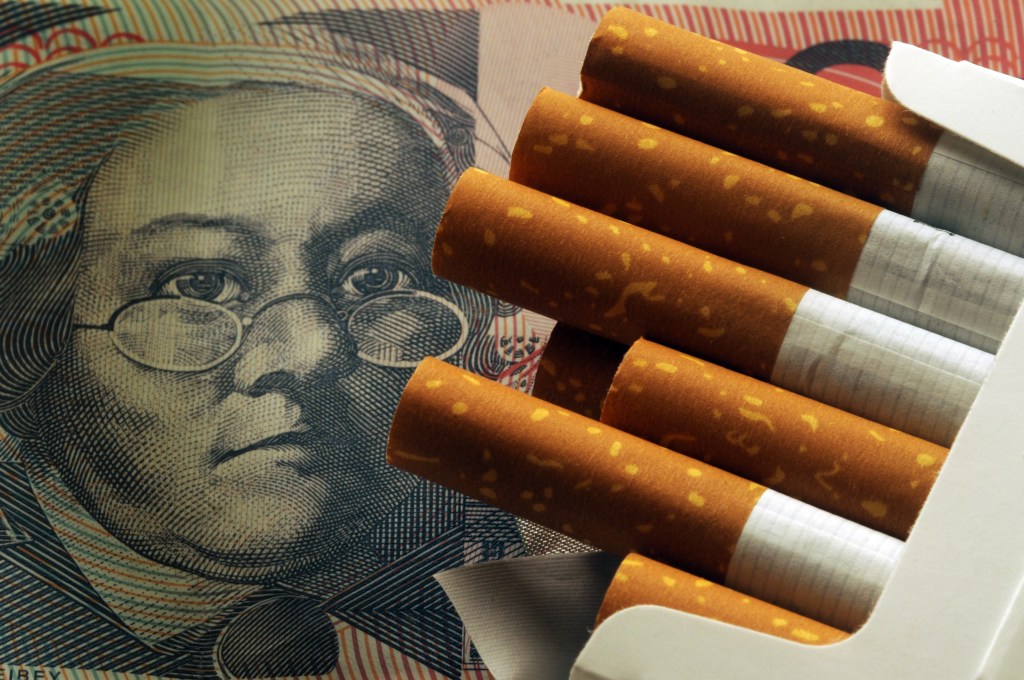The price of cigarettes would continue to rise into the next decade under a policy being considered by the Labor opposition, while senior Labor sources have reportedly said opposition leader Bill Shorten is considering extending the excise rises four years beyond the September 2016 end date.
Before the 2013 election the Labor government raised tobacco excise by 12.5 per cent a year over four years, estimated to raise $5.3 billion, while also reducing the number of smokers. However, Prime Minister, Malcolm Turnbull, proposed an excise rise in his budget reply speech in 2009. A senior Labor source told AAP that the Prime Minister should adopt the excise hike instead of raising the GST because it has an added health benefit. Assistant Treasurer Kelly O’Dwyer called the proposal another Labor “tax take”.
On September 1 this year, under the tobacco excise increase of 12.5 per cent, the second of four increases announced by the former Labor government and kept by Joe Hockey, smokers had to pay between $1.12 and $2.81 extra for packs of 20 and 50 cigarettes. The excise is set to increase again in September 2016.
The Australasian Association of Convenience Stores (AACS) believes more tobacco tax is “discrimination”, adding the amount of illegal tobacco that is being sold and consumed in this country has exploded since plain packaging was introduced.
“Australia is one of the world’s strongest markets for illicit tobacco because of the way legal tobacco is treated from an excise and regulatory perspective,” AACS CEO Jeff Rogut, said.
“The amount of illegal tobacco that is being sold and consumed in this country has exploded since plain packaging was introduced and as the endless series of tax hikes take a compound effect.
“What politicians have thus far failed to acknowledge is that, with the rise in the illicit tobacco market, the amount of tax revenue that goes uncollected by government rises too.
“According to the most recent KPMG research, the market for illicit tobacco has grown almost 30 per cent in two years, costing the government an estimated $1.35 billion in lost tax revenue last year alone.
“Relentless tax increases play directly into criminals’ hands. Meanwhile adult consumers who choose to smoke are demonised more and more. And retailers who responsibly sell a legal product bear the financial brunt of lost sales. It is short-sighted policy that must be resisted,” Rogut said.
E-cigarettes in the spotlight
E-cigarettes are also back in the spotlight after a new telephone-based survey of more than 12,500 NSW residents found only one per cent of Australians currently use e-cigarettes. This compared to 10 per cent in the US and 4 per cent in the UK, according to recent studies.
The survey, published in the Medical Journal of Australia, also found that current smokers are 7.5 times more likely to use e-cigarettes than non-smokers. In addition, males and people under the age of 45 are also more likely to use e-cigarettes than females and older people.
A study by an agency of the UK’s Department of Health said in August 2015 that electronic cigarettes are around 95 per cent less harmful than tobacco and should be promoted as a tool to help smokers quit.

